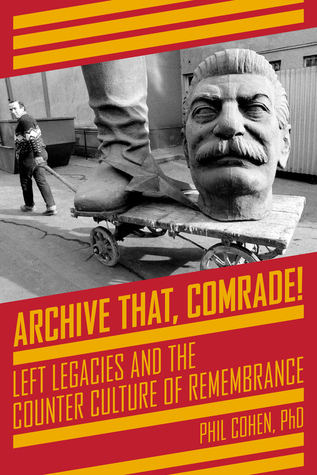
A short, thoughtful, and somewhat meandering book about the politics of memory and legacy and, specifically, archives. The author was part of the New Left in the UK – he went by “Dr. John” in those years and was a central figure in the London Street Commune – and went on to become “a cultural theorist, urban ethnographer, community activist, educationalist and poet.” The book begins from some broad consideration of the ways in which today’s culture has made all of us compulsive archivists of self via digital technologies, and about the left’s to-him largely unsatisfying politics when it comes to history and memory. He seems to both deeply feel the impulse to preserve, to remember, to archive, but also resolutely refuses to let that prevent him from critiquing that impulse and the various ways it manifests in both popular culture and the left – to the extent that the critique feels kind of harsh in places, though never to the point of excess. He then goes on to talk more specifically about archives, highlighting grassroots archives in particular. He develops a typology that helps draw out some important variations in approach, and their implications. He documents a couple of ethnographic encounters with a couple of different grassroots archives in London. And he develops his own take on how the left might more usefully relate to the past, under the banner of the “Living Archive” (or even better, the “Living Anarchive.”) Purely as a reader, I enjoyed the somewhat hodgepodgey character of the book and the way it poked into various corners of the issues raised in a way that seemed responsive largely to the interests of the author and the areas where he felt he had something interesting to say. That did make it a bit harder to know how to relate to it as a resource for a couple of things that I’m working on myself, though. I know for sure that the “Living Archive” stuff will be useful to me for some writing in my main book project that I probably won’t come to until mid-way through next year, but I’m not sure quite how to relate to some of the broader critiques of the left’s politics of memory and, frankly, of the personal impulse to archive which I have always felt and which has only intensified as I grow older. Anyway, a very useful book for me to read. I may end up re-reading it, or at least parts of it, when I come to do the relevant writing next year.
Originally posted by Scott on Goodreads.